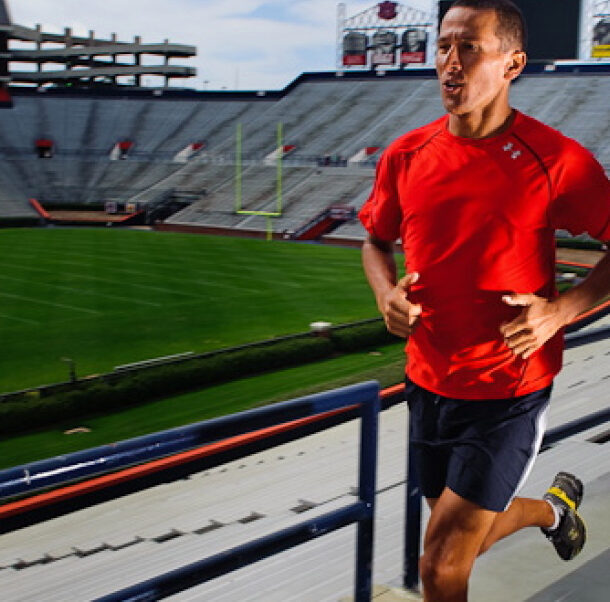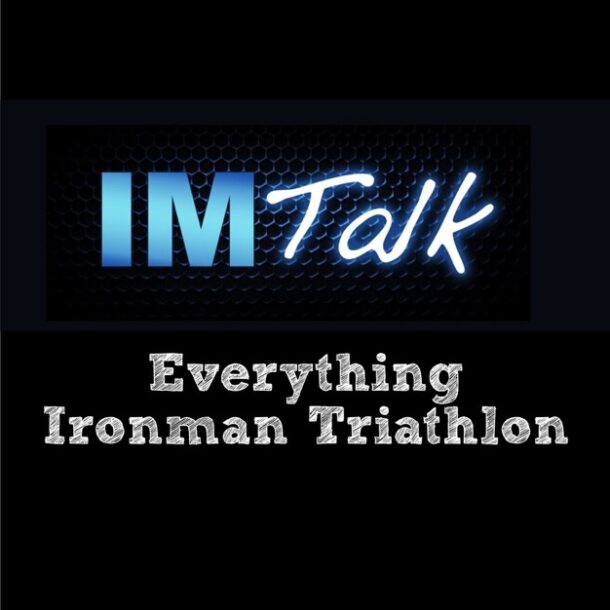
Would Lance Armstrong have been a major player in Kona? Probably. The winner? Not so fast.
(Originally published in Triathlete Magazine October 2012.)
The triathlon world was filled with excitement upon the announcement that Lance Armstrong would race Ironman in 2012. The Boy Wonder had returned to his roots more than two decades later. He made his intentions very clear: He wanted to race as a professional and compete to win at the Hawaii Ironman. When Lance spoke, the endurance world listened.
The stage was set. 2012 was going to be our sport’s most spotlighted year, and with Lance on the start line in Kona, the race was going to be a classic. Many said he would destroy the field. Others claimed he wouldn’t even finish. NBC committed to an extra 30 minutes of race coverage. Lance mania had gripped triathlon.
We all followed his progress at his first race in Panama with excitement when he finished second to Olympian Bevan Docherty in the Ironman 70.3 event. It was very much a statement race. “I am back!” The sport had never seen such paparazzi and hysteria. It was new to all of us.
Four weeks later, in a stacked field at Ironman 70.3 Texas, Lance had a solid performance to finish seventh. It showed us all a vulnerable side of Lance that we had only seen once in his Tour de France racing career. He bonked on the run and was reduced to a walk.
Ironman 70.3 St. Croix in May was the first sign that Armstrong was getting his nutrition right. He had an improved run off a monster bike, in hot and humid conditions. It was still not enough to win the race. Andy Potts blew past Armstrong on the run along with Frenchman Stephan Poulat.
Those of us who follow Lance on Twitter got to see some key training sessions he was putting out on the Big Island of Hawaii. It was obvious that Lance was engaged fully in his triathlon return. He had hired the best support team in the business: biomechanists, movement specialists and physiologists to fast-forward his progress. He adopted all those precision preparation pieces that he had engaged in his cycling career, which had netted him seven Tour de France titles. The results were coming.
Finally at his fourth attempt at the distance, Lance grabbed an easy victory at Ironman 70.3 Florida in May. Three months and four races in, Lance had come full circle. When he won again at the Ironman 70.3 event in Hawaii two weeks later, an Ironman Kona win and a battle on the lava fields filled the forum boards. Lance appeared unbeatable. The old brigade athletes like Crowie, Andreas Raelert and myself, according to the forums, didn’t stand a chance against the power of Team Armstrong. He was a game changer, and I had never seen speculation like it.
I was excited by the prospect of racing Lance Armstrong. I was a fan of his many Tour de France victories, and with a mother who passed away from cancer, I was touched by how this man had gone through what he had to conquer the world. I respected how he prepared for his races, his absolute attention to detail, and his persistent desire to get every little piece of his training puzzle perfect. He was a new challenge for me, and the opportunity to work this man out and implement my own strategies and preparations to take him on was enthralling. Kona was immediately back on my race calendar.
I was probed on my thoughts on Lance Armstrong, and as always was honest with my assessment. In an interview I had at home in Australia, the question was asked: Do you think you can beat Lance Armstrong in an Ironman? I replied with a laugh. “That question should be rephrased,” I chuckled. “This is my house! You should ask Lance how he thinks he can beat me. Lance Armstrong is a wonderful cyclist, but he doesn’t have a chance at beating me in triathlon. This sport involves swim, bike and run. I do all three of those disciplines very well and so do about 10 other athletes I can think of at the moment. Until he posts something in an Ironman race that makes me take real notice, then that question needs to be directed at Lance.” The statement made the front pages of the Australian newspapers, and within minutes my comments spread around the globe via social media. Lance was furious! People could not believe I had the audacity to make such a statement.
My statement was tongue-in-cheek, but it came from a position of knowledge. Lance had improved a lot, but until he had posted any sort of performance in an Ironman, it was all speculation. Lance’s celebrity and his feats as a cyclist had blinded many to his capabilities as a true player in Kona. Respect was built and earned in those battles that Lance had on our racing fields, and he was earning his in our sport, just as every other professional has to—with results. He was a swimming prodigy who grew into the greatest cyclist of our era. The third and final piece of the puzzle is what we all wanted to see. We all waited in anticipation for his first outing at the Ironman distance in France on June 24, a race that Lance strategically selected to give him the best chance at success. This race would give us all an insight into his marathon power after hard riding. But it never happened.
Less than two weeks prior to his Ironman debut, USADA charged Lance (and four others) with doping violations that occurred during his cycling career. The strict professional rules upheld by the World Triathlon Corporation immediately rendered Lance ineligible for competition until the investigation and allegations were settled. The Ironman journey was over before it began.
When I heard the news I was disappointed. I have no idea what evidence USADA has, and I have no idea whether or not Lance used performance-enhancing drugs. All I can trust is that the system is sound and that because he has never failed a drug test, I have to take that science on its merits and assume that he is innocent. If the case USADA has can change my opinion, then time will show me this. But as I write this, I feel for Lance.
The opportunity to race this man as a professional was motivating. It ignited that fire in me that I search for year after year. I saw this as my greatest opportunity to show the entire world that Ironman racing is a tough game, and that Lance Armstrong, in his desire to take a title that I hold very dear to my heart, had for once bitten off more than he could chew. I saw this as my chance to silence all the cyclists I ride with who make negative comments about triathletes (“Jack of all trades, master of none”). With Lance in our sport, it was a chance to show that triathlon requires a preparation that is refined and balanced. He had dominated the Tour de France, but I saw his racing Kona as my chance to show that Ironman racing at this level is one battle he would not win.
Unfortunately I may not get that chance. My fear is that the Lance Armstrong shadow will forever plague the 2012 race. Many will always wonder, “What could he have done?” The question will be asked, but no shadow should be cast. The boys who finish at the top of this year’s race are the greatest endurance racers in the world. As for Lance? In my opinion, he would have given us a great show, but this year’s winner will be the same whether or not Lance is there.
Lance, if you’re reading this article and take any offense, I truly mean none. I hope more than anything I can race you one day. It was great to have you back in triathlon, and I hope to see you on a start line again very soon.
Philosophy
“Great things happen to people who make great things happen.”
Navigate
chris@macca.com
Terms & Conditions
Privacy Policy

